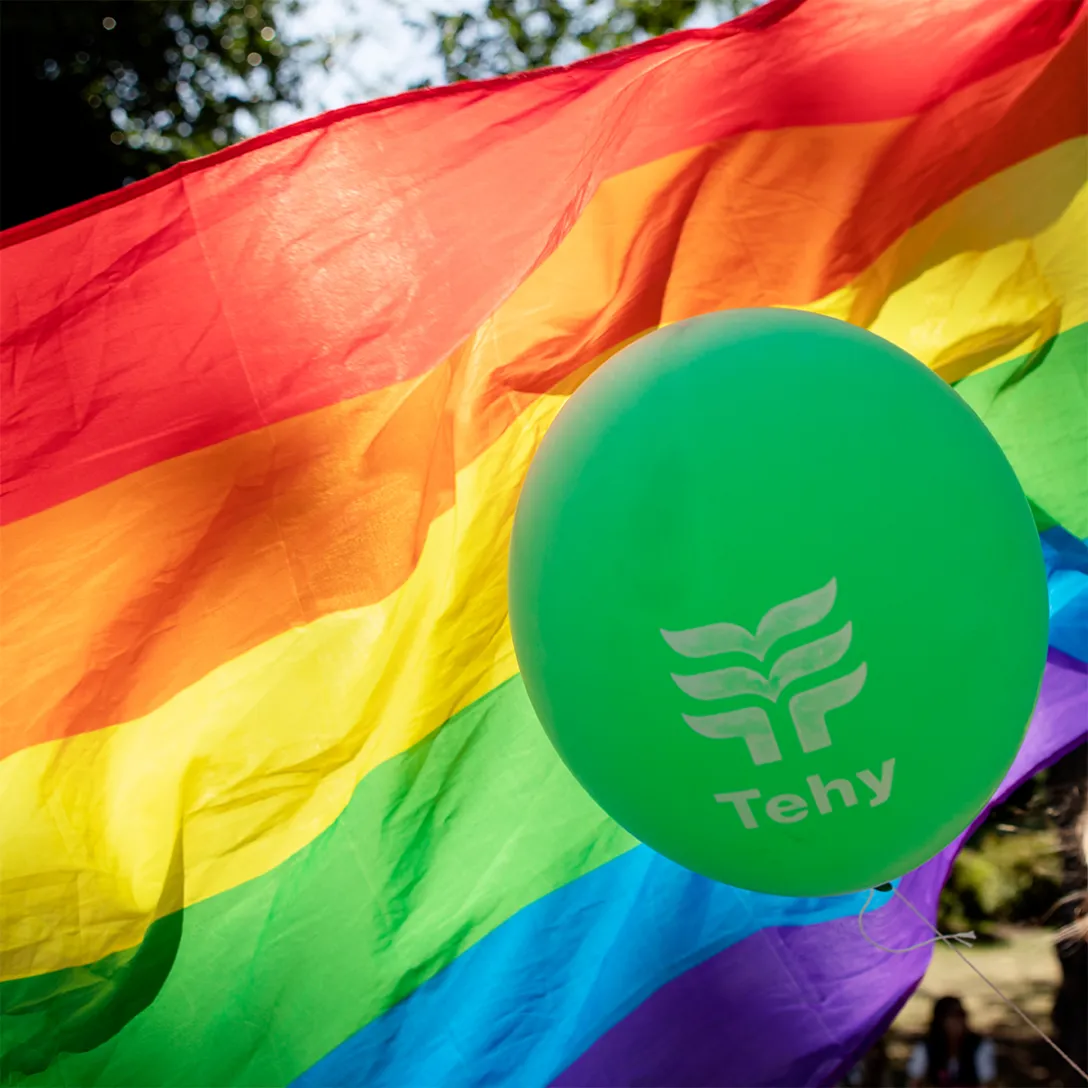In Finland, we are used to thinking that Finnish law ensures equal opportunities for all of us. However, this is not always the case. True equity is only achieved when laws are applied in practice and attitudes turn into everyday actions.
Tehy is the largest labour union for the healthcare, social welfare and education sectors in Finland. We play a significant role in building social equity. This does not only mean defending our members’ rights in individual court cases, but also influencing both the structures of society and the public opinion.
The Constitution of Finland is our foundation
Section 6 of the Constitution of Finland ensures human dignity and equal treatment for everyone: “No one shall, without an acceptable reason, be treated differently from other persons on the ground of sex, age, origin, language, religion, conviction, opinion, health, disability or other reason that concerns their person.” The anti-discrimination provision is extensive. The mention of ‘other reason that concerns their person’ allows constitutional protection for aspects such as gender identity or sexual orientation, even if they are not specifically mentioned in the law.
Section 6 is the legal foundation for laws such as the Act on Equality between Women and Men and the Non-Discrimination Act. It not only steers the work of authorities, legislators and courts, but it also lays the foundation for basic values in our society.
Regarding equity, the key laws are the Non-Discrimination Act and the Act on Equality between Women and Men, which explicitly prohibit discrimination. Workplace non-discrimination and equity plans prepared based on these laws provide guidance for how to pay attention and ensure equity at work. The plans help employers recognise any shortcomings and set goals for remedying them.
Beyond its name, the Act on Equality between Women and Men also applies to discrimination based on gender identity and gender expression.
The Act is widely applied in different areas of society: employment, education, official activities, and public services. Furthermore, the Act does not only seek to prevent discrimination, but also to promote substantive equality and improve the position of vulnerable groups, in particular.
Respect for gender identity and gender expression is part of the work towards equity.
In early 2023, the Act on Equality between Women and Men was amended with a provision that employers, authorities, educational institutions and organisers of early childhood education must prevent discrimination based on gender identity or gender expression.
This means that the rights of groups such as transgender and non-binary persons are no longer simply a gesture of goodwill, but that their protection is written in law. Anti-discrimination work must be goal-oriented and systematic. It cannot be founded on chance or an individual’s goodwill. This obligation must be included in the equity plans of workplaces and educational institutions, as well.
It is not only about non-discrimination, but also actively building equal and safe spaces for everyone across the gender spectrum. This legal provision is an important step, but it requires knowledge, education and true commitment in everyday practices to support it.
Both the Act on Equality between Women and Men and the Non-Discrimination Act include provisions on the burden of proof, which reinforce legal protection. The legal premise is that a person who suspects discrimination does not have to prove everything. It is sufficient that the person presents probable cause to assume that discrimination has occurred. In this case, the opposing party, such as the employer or an authority, must show that there were acceptable and non-discriminating grounds for the practice in question.
Discrimination based on pregnancy and family leave still exists
In the case of Tehy members, I must highlight discrimination based on pregnancy and family leave, which affects women, in particular. The Act on Equality between Women and Men explicitly prohibits direct and indirect discrimination based on gender. Despite this, discrimination based on family leave is an everyday occurrence in the healthcare, social welfare and education sectors.
Most of the discrimination cases submitted to Tehy legal services are related to the above. In a typical case, the fixed-term employment contract of the pregnant person is not renewed. Even today, in 2025, employers attempt to get around paid family leave and terminate fixed-term employment contracts when an employee announces their pregnancy.
The situation is not made easier by the changes planned by the Finnish Government that would allow one-year fixed-term employment contracts without any special grounds.
Fortunately, Tehy members have access to Tehy legal services. They deal with all work-related disputes and offences, at the price of the membership fee.
No privilege, but balance
Positive action is not about privilege, but balancing.
Often, you hear people say that everyone should be treated the same. But true equity is not everyone getting the same things. It comes from everyone having the opportunity to achieve the same goals.
This is why legislation allows for positive action, or ‘positive discrimination.’ It is intended to support vulnerable groups and balance out systemic or historical inequity.
For example, recruitment efforts may favour an applicant from an under-represented group if two applicants are equally competent. Such action is not discrimination, but based on the Act on Equality and the Non-Discrimination Act. The requirement for positive action is that the special treatment is appropriate and proportionate.
Positive action is not a privilege, but a way of dismantling systemic discrimination. It does not take anything away from anyone, but it strengthens those weakened by inequity. This is part of a fair and just society.
Act on Legal Recognition of Gender: self-determination in everyday life
The Act on Legal Recognition of Gender, reformed in 2023, is a concrete example of how legislation can dismantle discriminatory systems. Before, the recognition of legal gender required heavy medical processes. Now, self-determination is written in law.
This is significant at work. When your documents match your identity, there is less risk of misgendering. Everyone can come to work as they are – and this is not just out of others’ goodwill – it is a right. At the same time, the development reminds us that equity requires both changes in attitudes and legal reforms in parallel.
Gender diversity is also visible in other legislation – or invisible, as it may be. Many laws, such as the Population Information System Act and the Passport Decree are based on the binary concept of gender. We need gender-neutral or more diverse phrasing so that people can use services under their own identity without bureaucratic obstacles. As such, legislation must also recognise other gender identities than ‘woman’ and ‘man.’
DEI is constant development
DEI work is talked about increasingly often, which is good. The acronym DEI stands for ‘Diversity, Equity and Inclusion.’
It is not just a buzzword; instead, it is about each workplace and community being responsible for creating a safe and equal environment where everyone can be themselves and be treated with dignity.
Diversity means appreciation for different backgrounds, experiences and identities. Equity means that everyone truly has the same opportunities and that those with different starting points are supported. Inclusion ensures that no one is left outside and that everyone can fully participate in and influence society.
DEI work is not individual actions, but constant development. It is a part of recruitment, workplace routines, and the way we intervene in inappropriate treatment. Succeeding in this work will improve all of our wellbeing, trust, and finally, productivity.


